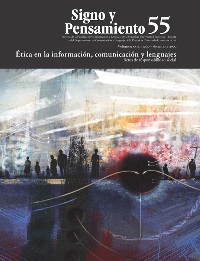Abstract
During the humanitarian operation that freed three members of the Colombian Police and one soldier of the Colombian Army held as hostages by the guerrilla organization farc, some of the journalists got involved in incidents which opened up a debate in Colombia. What ethical implications does the double role of journalist and guarantor in a hostage liberation situation bring? What thoughts does a reporter have when informing about this kind of news? This article collects the reflections of two journalists who were involved in the events on February 1st, 2009, and also those of a Latin American expert in journalistic ethics.
This journal is registered under a Creative Commons Attribution 4.0 International Public License. Thus, this work may be reproduced, distributed, and publicly shared in digital format, as long as the names of the authors and Pontificia Universidad Javeriana are acknowledged. Others are allowed to quote, adapt, transform, auto-archive, republish, and create based on this material, for any purpose (even commercial ones), provided the authorship is duly acknowledged, a link to the original work is provided, and it is specified if changes have been made. Pontificia Universidad Javeriana does not hold the rights of published works and the authors are solely responsible for the contents of their works; they keep the moral, intellectual, privacy, and publicity rights.
Approving the intervention of the work (review, copy-editing, translation, layout) and the following outreach, are granted through an use license and not through an assignment of rights. This means the journal and Pontificia Universidad Javeriana cannot be held responsible for any ethical malpractice by the authors. As a consequence of the protection granted by the use license, the journal is not required to publish recantations or modify information already published, unless the errata stems from the editorial management process. Publishing contents in this journal does not generate royalties for contributors.


